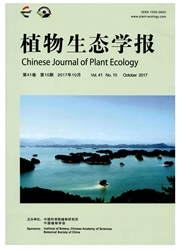

 中文摘要:
中文摘要:
海上溢油和船舶含油废水排放等石油污染给海洋生态环境带来严峻考验。为了解石油污染对海洋浮游植物的短期群落效应,于实验室对采自浙江省乐清湾海域的四季浮游植物进行了14天的微宇宙实验研究。通过测定不同浓度原油水溶性成分(water accommodated fraction,WAF)胁迫下浮游植物群落各种类的细胞密度,发现原油WAF对浮游植物群落的种类数、多样性、均匀度和优势种组成及优势度均有极显著影响。原油污染组的种类数均低于对照组,多样性指数也总体上低于对照组,但均匀度指数无明显规律。WAF对各季节浮游植物群落优势种的影响存在季节、浓度梯度和种类差异:1)在高浓度WAF(≥2.28mg?L-1)胁迫下,各季节浮游植物群落中中肋骨条藻(Skeletonema costatum)的优势度均呈升高趋势,除秋季外,长菱形藻(Nitzschia longissima)在其余季节的优势度均显著下降,另外秋季实验中微小原甲藻(Prorocentrum minimum)的优势度呈先升高后下降的趋势,秋冬季斜纹藻(Pleurosigma sp.)和念珠直链藻(Melosira moniliformis)的优势度呈下降趋势;2)在低浓度WAF(≤1.16mg?L-1)胁迫下,除秋季中肋骨条藻仍为绝对优势种外,其余季节该种微藻的优势度均呈下降趋势,春、夏季长菱形藻的优势度逐渐升高,而冬季则是念珠直链藻的优势度不断增加。原油WAF影响下,可能r策略种将逐渐取代k策略种,导致浮游植物群落趋于小型化。
 英文摘要:
英文摘要:
Aims Oil contamination in marine environments poses a significant threat to marine life,especially phytoplankton. We simulate oil contamination on the natural phytoplankton community and study species changes in the community. Our objectives are to determine influences of oil pollution on the ecology of marine phytoplankton and to provide basic data for the assessment of losses in marine ecosystems caused by oil spills and oil pollution. Methods In four seasons from November 2008 to July 2009,we collected phytoplankton from Yueqing Bay in China's Zhejiang Province. We chose eight levels of crude oil water accommodated fraction (WAF) to perform 14-day culture experiments of phytoplankton under different WAF stresses. We measured phytoplankton cell den-sity and identified species every 24 h. Important findings Diversity (H),evenness (J),species number (S) and species composition of phytoplankton were significantly influenced by crude oil WAF in all four seasons. Values of S and H in crude oil WAF groups were all lower than in control groups,but there were no significant differences in J. The influences of crude oil WAF on dominant species of phytoplankton were different among seasons,concentrations,and species. Under high levels of crude oil WAF (≥ 2.28 mg-L–1),dominance of Skeletonema costatum increased in the four seasons,while dominance of Nitzschia longissima decreased in all seasons except autumn. Dominance of Prorocentrum minimum first increased and then decreased,while dominance of Pleurosigma sp. and Melosira moniliformis decreased in autumn and winter. Under low levels of crude oil WAF (≤ 1.16 mg-L–1),dominance of S. costatum decreased in all seasons except autumn,N. longissima increased in spring and summer,and M. moniliformis increased in winter. With the impact of crude oil WAF,species with r-strategy may gradually replace species with k-strategy,thus leading to abnormal succession.
 同期刊论文项目
同期刊论文项目
 同项目期刊论文
同项目期刊论文
 期刊信息
期刊信息
